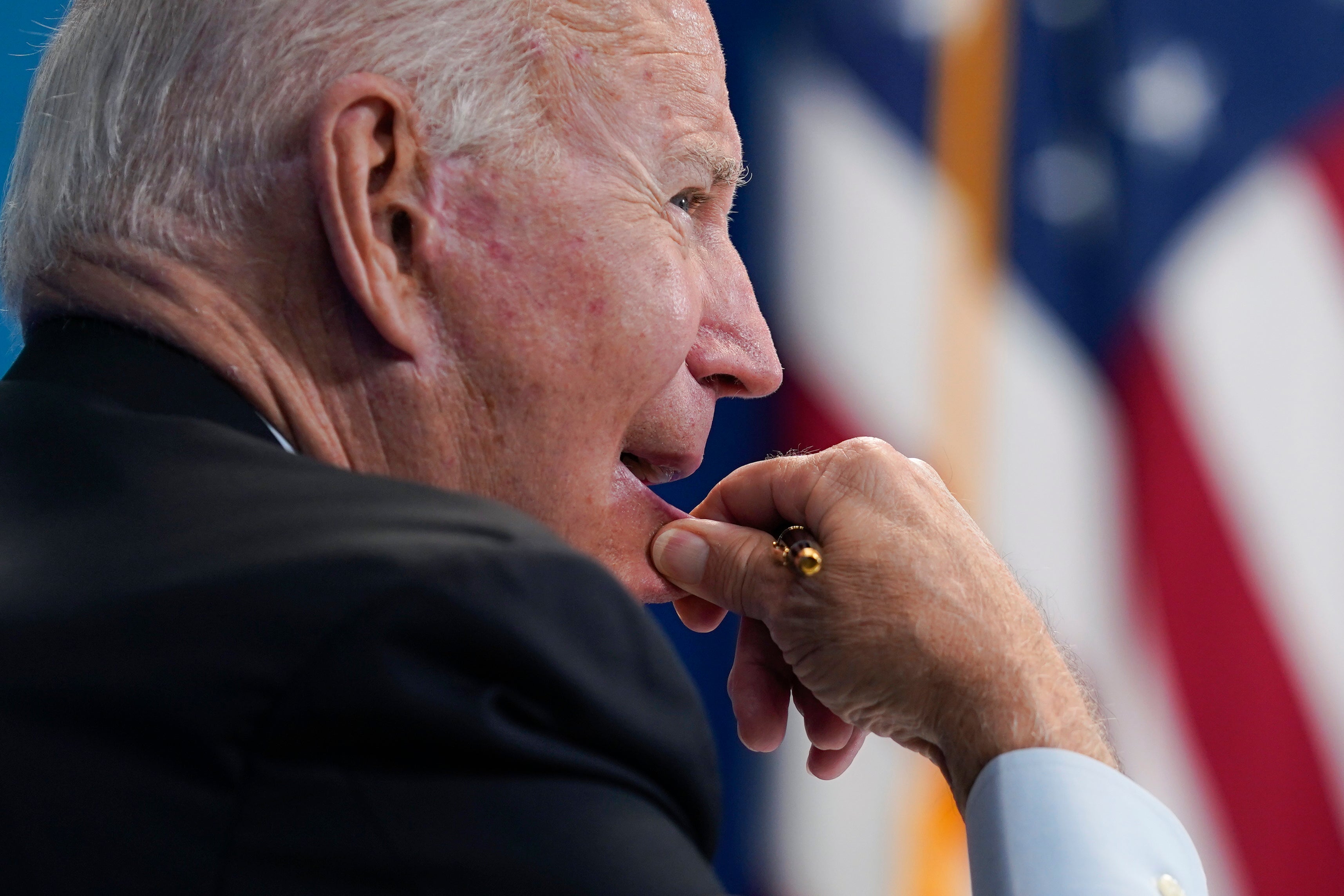Will the retreat from Afghanistan permanently scar Joe Biden’s presidency?
While the handling of the withdrawal has damaged Biden’s reputation abroad, how much of an impact it has among American voters remains to be seen, writes John Rentoul


The net effect of the fall of Kabul on Joe Biden’s reputation has been negative so far. At home, any credit he might have gained for seeing through the popular demand to bring US troops home has been outweighed by the humiliation suffered by the US by the manner of its departure. Abroad, the new president has few defenders and many critics.
Like most US leaders, President Biden is more focused on domestic opinion. Despite a foreign policy background for most of his political career, Biden seems resistant to the consensus view on Afghanistan. As vice president, he opposed Barack Obama’s decision to send more troops there in 2009, and it has been speculated that part of his determination to complete the withdrawal regardless of how messy it became arises from his need to prove that he could accomplish what Obama could not.
As Gerard Baker wrote in The Times yesterday, “It was no secret that the people around Obama, and sometimes the 44th president himself, regarded the vice president as a faintly comical figure,” and it may be that Biden’s stubbornness comes from his need to show that he is no fool.
Although President Biden has been mocked for his incoherence and unfinished sentences, and although it is persistently suggested that he is losing his mental capacity, what has been striking about his news conferences and speeches was the vehemence with which he suggested that he was willing to endure a certain amount of chaos and disorder just to get the withdrawal done.
He seems to have made a firm and even callous decision to press ahead, putting up with bad headlines in the short term, for the sake of being able to claim that he has delivered what the American people wanted. More than that, he wants it to be noted that he succeeded where both Obama and Donald Trump failed.
He has calculated that the US electorate will care more about getting their “servicewomen and men” home than they will blame him for the embarrassment of handing back a broken country to the same violent jihadists from whom it was taken 20 years ago.
It is too early to say how that will work out, but two weeks after the fall of Kabul the effect on Biden’s approval rating in opinion polls has been modest. The FiveThirtyEight average of polls records that about 3 per cent of voters have switched from “approve” to “disapprove”, pushing his average rating (just) into net negative territory for the first time in his presidency.
However, the national embarrassment factor of the withdrawal from Afghanistan may be less potent than that of the fall of Saigon in 1975 – which hurt Gerald Ford mainly with the right wing of the Republican Party – and the hostage crisis in Tehran in 1979-81, which was bad for Jimmy Carter.

It may be that the withdrawal from Afghanistan will have more of an effect on President Biden’s standing in world opinion and with other world leaders. We may not know until confidential papers are published in 20 years’ time (the 30-year rule has been shortened) what representations the UK government made to the White House as the Afghan government crumbled, but there is no doubt that Boris Johnson and other Nato leaders were dismayed by the lack of consultation with them.
This may lead to another bout of handwringing about the reliability of the US as an ally, although we have just been through four years of that with President Trump. On the US side, it has been reported that President Biden has been stung by anonymous comments attributed to British ministers – and by Tony Blair’s criticism of the president’s obedience to the “imbecilic” slogan of ending “the forever wars”.
Certainly, the starry-eyed assumption that greeted Biden’s inauguration in January that the US was back as a warm and predictable ally on the world stage has been rudely contradicted, but it seems unlikely that the western alliance has been permanently scarred.

Join our commenting forum
Join thought-provoking conversations, follow other Independent readers and see their replies
Comments